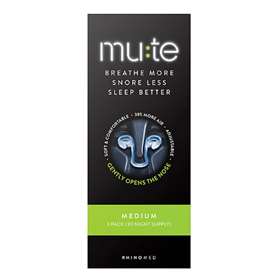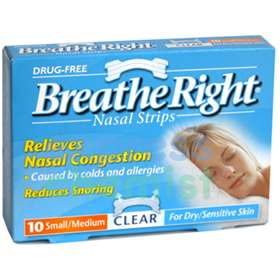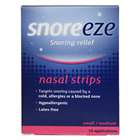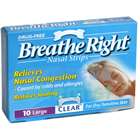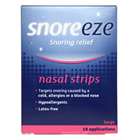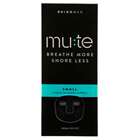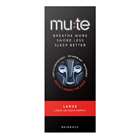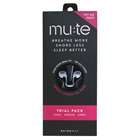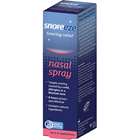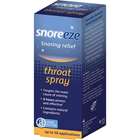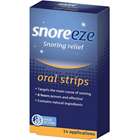1. What is snoring?
Vibrations in the upper airway (nose and throat) caused by breathing will usually make the sounds we associate with snoring. The vibrations are generally due to turbulence caused by a partial blockage in the airway that may only occur during sleep, or may occur all the time and only noticeable during sleep.
2. Why do I snore?
Snoring usually stems from a respiratory problem that is highlighted by sleep and can be due to a variety of causes:
- Obesity - Excess fat deposited around the neck and throat tends to squash the airway leaving less room to breathe. A narrow airway is likely to vibrate causing a snore. A person with a collar size of 16 ½" or more may be more likely to snore.
- Smoking - Smoke drys out the mucous membranes in the nose which causes the problem for snorers. Passive smoking may also cause you to snore.
- Mouth - When breathing through the mouth, airflow hits the back of the throat which can cause vibrations of the soft tissue.
- Tongue - Some snores can come from the base of the tongue when it is blocking the throat. This is likely to happen in people who have an unusual bite. A device that brings the jaw forward may be the solution.
- Nose - Small nostrils and nasal congestion will prevent easy breathing through the nose causing you to breathe through your mouth.
- Sedatives- Alcohol, sleeping pills and drugs will depress the central nervous system making your throat muscles less toned and more relaxed. This will then squash the airway and cause you to snore.
- Position- Sleeping on your back will cause you to snore more than sleeping on your side.
3. How can I stop my snoring?
There are various methods and products you can use to prevent snoring and the right one for you will depend upon the cause of your snoring. Some of the solutions are quite obvious! - If you are overweight even a small loss of weight can improve your sleep and reduce snoring. Try sleeping on your front or side to shift the weight off your airway.
- Smokers, stop smoking! Or reduce the amount you smoke in the hours before bedtime. A throat or nasal spray like Snoreeze may help to lubricate dried out soft tissue along the airways to reduce vibrations.
- If you breathe through your mouth at night dry mouth in the morning is usually a sign of this) then a throat spray may help to prevent vibrations of the soft tissue at the back of the throat. Ask yourself why you breathe through your mouth, is your nose congested?
- Small nostrils can be expanded with Breathe Right Nasal Strips to allow for easier breathing.
Decongestants such as
Vicks Sinex Micromist, can help to unblock a stuffy nose.
Don't drink alcohol before bed and try to avoid taking sedatives.
4. Will sleeping pills help?
No, sleeping pills can make snoring worse as they have a relaxing effect on the respiratory system which will mean that the airway is more likely to vibrate whilst breathing.
5. My partner snores and keeps me awake, what can I do?
You could try wearing some
ear plugs at night to see if they help reduce the noise.
6. I've been told that during sleep I often stop breathing and then start again 10 seconds later with a loud snore or snort, should I be worried about this?
There is a chance that you may be suffering from
Sleep Apnoea and so a visit to your GP may be needed.
7. What is Sleep Apnoea?
Sleep Apnoea is a condition where the airway becomes obstructed during sleep, usually by the relaxed airway collapsing, preventing air from entering the lungs. Your brain automatically wakes you up just long enough to take a breath and then you fall back to sleep. This can happen multiple times over the course of a night and sufferers may notice that they are particularly tired throughout the day despite a full nights rest.


